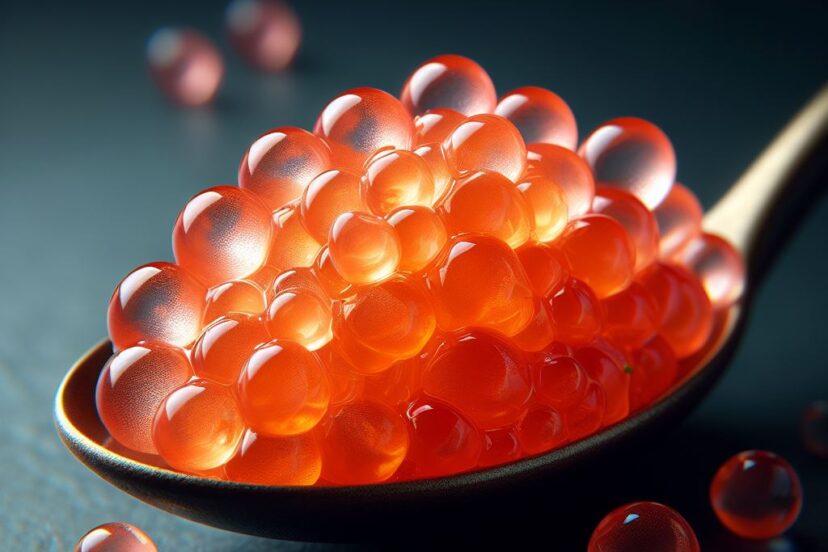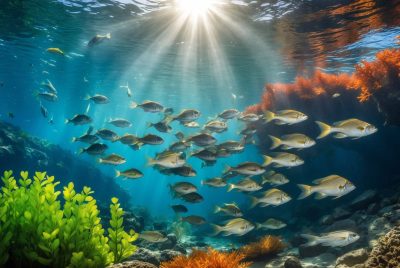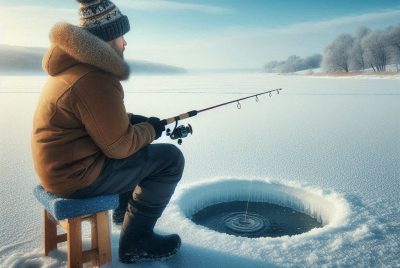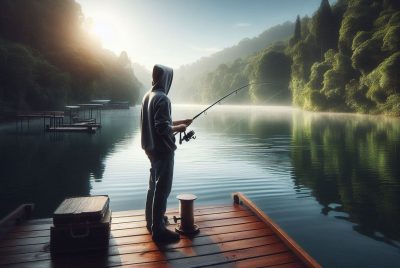Fish Eggs: Exploring their Vital Role in Aquatic Ecosystems
*We may earn a commission for purchases made using our links. Please see our disclosure to learn more.
Fish Eggs: A Rich Tapestry in Fishing
Fish eggs, commonly referred to as roe, are the embodiment of life within the aquatic realm. These small, gelatinous spheres encapsulate the potential for new life, embodying a critical stage in the lifecycle of fish species. Their varied shapes, sizes, and colors range from the prized caviar of sturgeon to the more commonly encountered salmon roe. Both fascinate and contribute significantly to various facets of our lives.
As a devoted enthusiast and advisor in the realm of fishing, I aim to illuminate the multifaceted world of fish eggs. Which is an often underappreciated aspect of aquatic life. These tiny orbs, represent the promise of future generations of diverse fish species. They also hold immense significance in the intricate web of ecosystems, culinary pursuits, and conservation efforts.
Importance of Fish Eggs in the Aquatic Ecosystem
Within the labyrinth of aquatic ecosystems, fish eggs play an indispensable role in maintaining biodiversity. As a primary food source for numerous aquatic organisms, they perpetuate the intricate balance of the food chain. Their existence contributes to the resilience and stability of aquatic environments. Also ensuring the continuation of diverse species and sustaining the natural cycle of life.
Types of Fish Eggs
Two distinguished categories of fish eggs dominate discussions in culinary realms: caviar and roe. Caviar, esteemed for its exquisite taste and exclusivity, predominantly originates from sturgeon species and has garnered global acclaim. In contrast, roe encompasses the eggs of various fish species such as salmon, trout, and carp, among others. They offer a more accessible and diverse option in the culinary world.
Factors Affecting Fish Egg Quality
The quality and viability of fish eggs heavily hinge upon environmental factors. Pristine water quality, optimal temperature, and suitable environmental conditions are pivotal for the healthy development of fish embryos. Any deviation from these ideal conditions can adversely impact the survival rate and health of these eggs, highlighting the delicate balance required for their successful incubation.
Collection and Processing of Fish Eggs
Harvesting these eggs necessitates a delicate equilibrium between sustainable practices and careful handling techniques. Sustainable harvesting methods prioritize the replenishment of fish populations while ensuring minimal disruption to their natural habitats. Simultaneously, meticulous preparation techniques, often involving salt curing or gentle pasteurization, are employed to maintain the integrity, flavor, and quality of the eggs for consumption.
Culinary Uses and Health Benefits
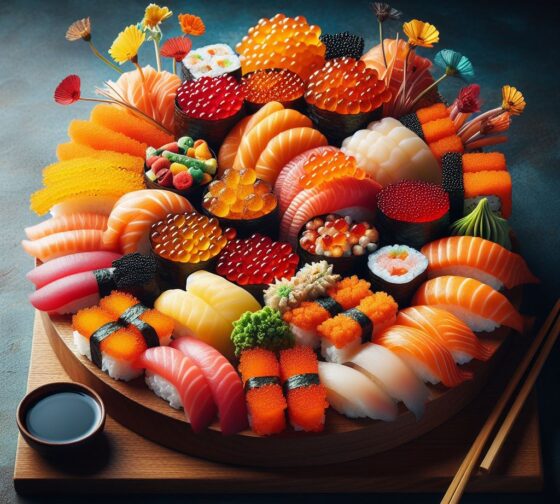
Culinary aficionados cherish fish eggs for their unique flavors and versatility in various cuisines worldwide. The delicate bursts of briny or buttery flavors coupled with their characteristic textures contribute to their appeal in haute cuisine. Furthermore, these diminutive spheres are nutritional powerhouses, boasting high levels of omega-3 fatty acids, vitamins, and minerals—rendering them beneficial for cardiovascular health, brain function, and overall well-being.
Sustainable Fishing Practices
The implementation of sustainable fishing practices is paramount in ensuring the continued availability of fish eggs and the preservation of aquatic ecosystems. Overfishing and irresponsible harvesting methods have posed significant threats to fish populations and their reproductive cycles. By adopting sustainable approaches, such as promoting selective harvesting, enforcing fishing quotas, and utilizing non-destructive fishing gear, we can mitigate the adverse effects of excessive exploitation.
These practices not only safeguard fish populations but also protect vital spawning grounds and preserve the delicate balance of aquatic habitats. Engaging in responsible fishing practices maintains the viability of fish eggs for future generations. As well as upholds the resilience of entire aquatic ecosystems, fostering a harmonious coexistence between human activities and nature.
Artificial Fish Egg Recommendations
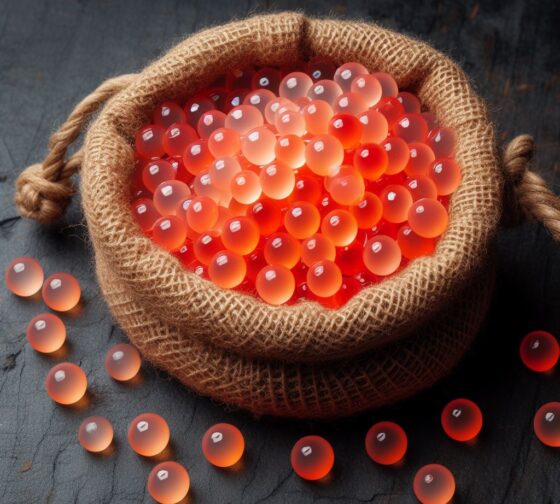
There are several reputable brands offer artificial fish eggs or fishing bait designed to imitate fish eggs. Here are three popular brands known for their artificial fish egg products:
- Pautzke Bait Company – Pautzke is renowned for its Fire Balls and Fire Bait, which are artificial baits designed to mimic natural fish eggs. These products come in various colors and scents to attract different fish species.
- Atlas-Mike’s Bait – Atlas-Mike’s offers a range of artificial salmon eggs and trout bait that closely resemble natural eggs. Their offerings include various colors and sizes, providing anglers with versatile options for different fishing conditions.
- Berkley PowerBait – Berkley is a well-known brand for fishing baits, including their PowerBait series, which includes artificial eggs that appeal to a wide range of fish species. These baits are known for their lifelike appearance and enticing scents.
Please note that the market for fishing bait and artificial eggs may have seen new products or changes since then.
Educational Outreach and Awareness
Raising awareness and educating communities about the significance of fish eggs and their role in sustaining aquatic life is crucial for fostering a collective commitment to conservation. Through educational programs, public campaigns, and outreach initiatives, we can highlight the interconnectedness between human actions and the health of aquatic ecosystems.
Promoting a deeper understanding of the importance of these eggs encourages responsible consumer choices, advocating for sustainable seafood consumption and supporting initiatives that prioritize the protection of fish habitats. Empowering individuals with knowledge about the impact of their choices cultivates a sense of responsibility towards preserving these delicate entities. By uniting efforts in educational outreach, we can inspire a global community dedicated to safeguarding the invaluable contributions of fish eggs to our ecosystems.
Expanding our efforts beyond sustainable fishing practices and focusing on educational outreach serves as a vital step towards fostering a collective responsibility for the preservation of fish eggs. Also the overall health of aquatic environments. Through such initiatives, we can instill a deeper appreciation for the intricate connections between human activities and the delicate balance of nature. Ultimately contributing to the long-term sustainability and resilience of our aquatic ecosystems.
Conservation Efforts and Sustainability
The preservation of fish populations and their reproductive cycles stands as a fundamental tenet of conservation efforts. Embracing sustainable practices in fishing, such as regulating fishing quotas, protecting critical spawning grounds, and implementing habitat restoration projects, plays a crucial role in maintaining the delicate balance of aquatic ecosystems. The commitment to safeguarding fish eggs and their habitats ensures the perpetuation of these vital species and their invaluable contributions to ecosystems.
Conclusion
In summary, fish eggs symbolize not merely a culinary delicacy but a fundamental element woven intricately into the tapestry of aquatic ecosystems. Their pivotal role in maintaining biodiversity, their culinary appeal, and their exceptional nutritional value underscore the significance of responsible harvesting practices and conservation efforts.
Recognizing the multifaceted value of these eggs fosters a deeper appreciation for their role in sustaining aquatic life and encourages a commitment to preserving these remarkable entities for generations to come.
FAQs About Fish Eggs
Are all fish eggs edible?
Not all of these eggs are considered edible, but many are safe and consumed as delicacies in various cuisines. However, caution is advised as some species’ eggs may be toxic.
What makes caviar so expensive?
Caviar’s exclusivity and high price tag stem from its rarity, the species it originates from (often sturgeon), and the labor-intensive harvesting process.
How can I tell if fish eggs are fresh?
Fresh eggs usually have a glossy appearance, a clean smell of the sea, and firm texture. Avoid eggs that appear dull, mushy, or emit an unpleasant odor.
Are fish eggs good for health?
Yes, these eggs are packed with nutrients like omega-3 fatty acids, vitamins, and minerals. Thus offering various health benefits, including improved heart health and brain function.
How can I contribute to fish egg conservation?
Supporting sustainable fishing practices, advocating for regulations protecting fish habitats, and being mindful of your seafood consumption can contribute significantly to fish egg conservation efforts.

